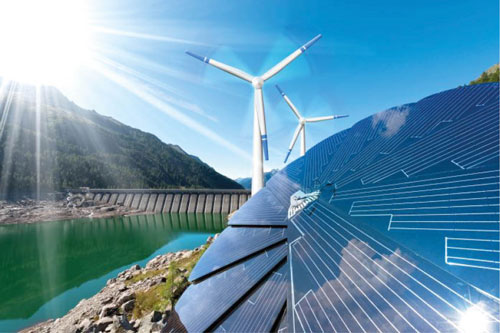Green energy can yield huge socio-economic dividends for Pakistan: Danish experts
Zubair Qureshi Islamabad
The government-to-government and peer-to-peer cooperation between Pakistan and Denmark for Pakistan’s transition to green energy is moving forward gradually yet steadily and the Danish side has offered all out assistance to the Pakistan government and the stakeholders for achievement of the country’s green energy targets.
In this regard, the Danish energy experts with the facilitation of the Embassy of Denmark in Islamabad have been in constant consultation with the National Electric Power Regulatory Authority (NEPRA), National Transmission & Despatch Company (NTDC), Alternative Energy Development Board (AEDB) and policy makers to share their expertise and provide technical assistance.
Assar Qureshi who is Denmark’s Regional Energy Counsellor for Asia and Nadeem Nawaz, Special Adviser Danish Energy Agency (DEA) in an exclusive interview with Pakistan Observer termed this cooperation very important and held if Pakistan achieved its green energy targets such as 30pc energy share from renewables (solar and wind) by 2030—currently it is 4pc—it could overcome most its energy challenges like long hours of power outages, carbon emissions and inflated power bills, etc.
Assar said his job was to look for possible synergies from the Danish side and strategically coordinate the government-to-government programmes across Asia. “I am here to assist Pakistan in the green transition using Danish experiences,” he said.
In Asian countries such as Japan, South Korea, China, India, Vietnam and Indonesia the Danish Energy Agency has successfully launched projects that focus on long-term energy planning, integration of renewables, energy system enhancement, energy efficiency, he said adding “in all these areas we have worked for the last many decades in Denmark.”
Pakistan can benefit from the Danish experience and in my view, a long-term and predictable policy framework is important to bring down the cost of renewable energy projects over time and make them more competitive, he said.










